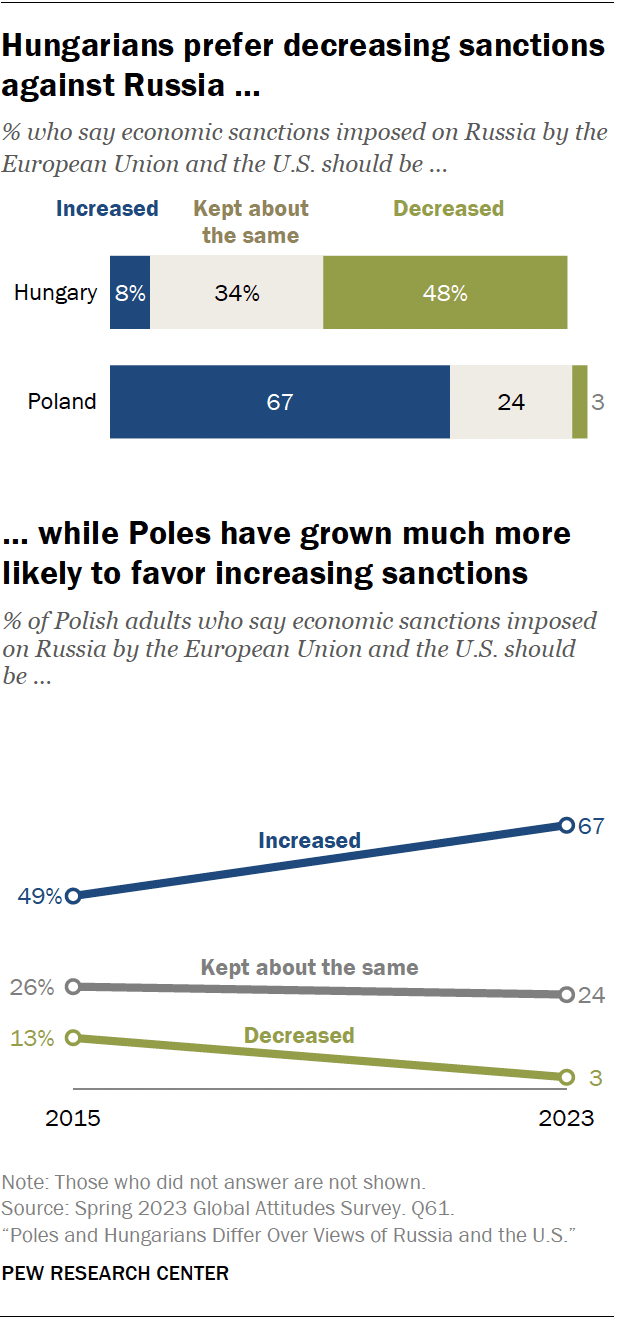People in Hungary and Poland take different views of the economic sanctions the EU has imposed on Russia. A plurality of Hungarians (48%) say these sanctions should be decreased. About a third say sanctions should be kept the same, and few overall – just 8% – believe they should be increased. Hungarians are also particularly favorable on maintaining access to Russian energy compared with other European countries. About three-quarters say maintaining access to Russian oil and gas is more important than being tough with Russia on Ukraine.

Those on the ideological right in Hungary are more than twice as likely as those on the left to favor decreasing sanctions against Russia (55% vs. 24%, respectively). And those with a favorable view of right-wing populist party Fidesz are also more likely to want to decrease sanctions than those who don’t have a positive view of the party. For more information on how we categorize populist parties, read the Appendix.
Poles take the opposite approach: 67% believe sanctions from the EU should be increased. About a quarter say they should be kept the same, and only 3% say they be decreased. This aligns with Polish opinion on responding to Russia: A large majority in Poland (84%) also says it is more important to be tough with Russia on Ukraine than to maintain access to Russia’s energy.
The share in Poland who want to increase sanctions against Russia has risen 18 percentage points since the question was last asked in 2015, after Russia’s annexation of Crimea (trend data is not available in Hungary). At the time, Poles stood out among other NATO countries as being particularly favorable toward increasing sanctions, and this sentiment has only grown stronger: Two-thirds want to increase sanctions.




